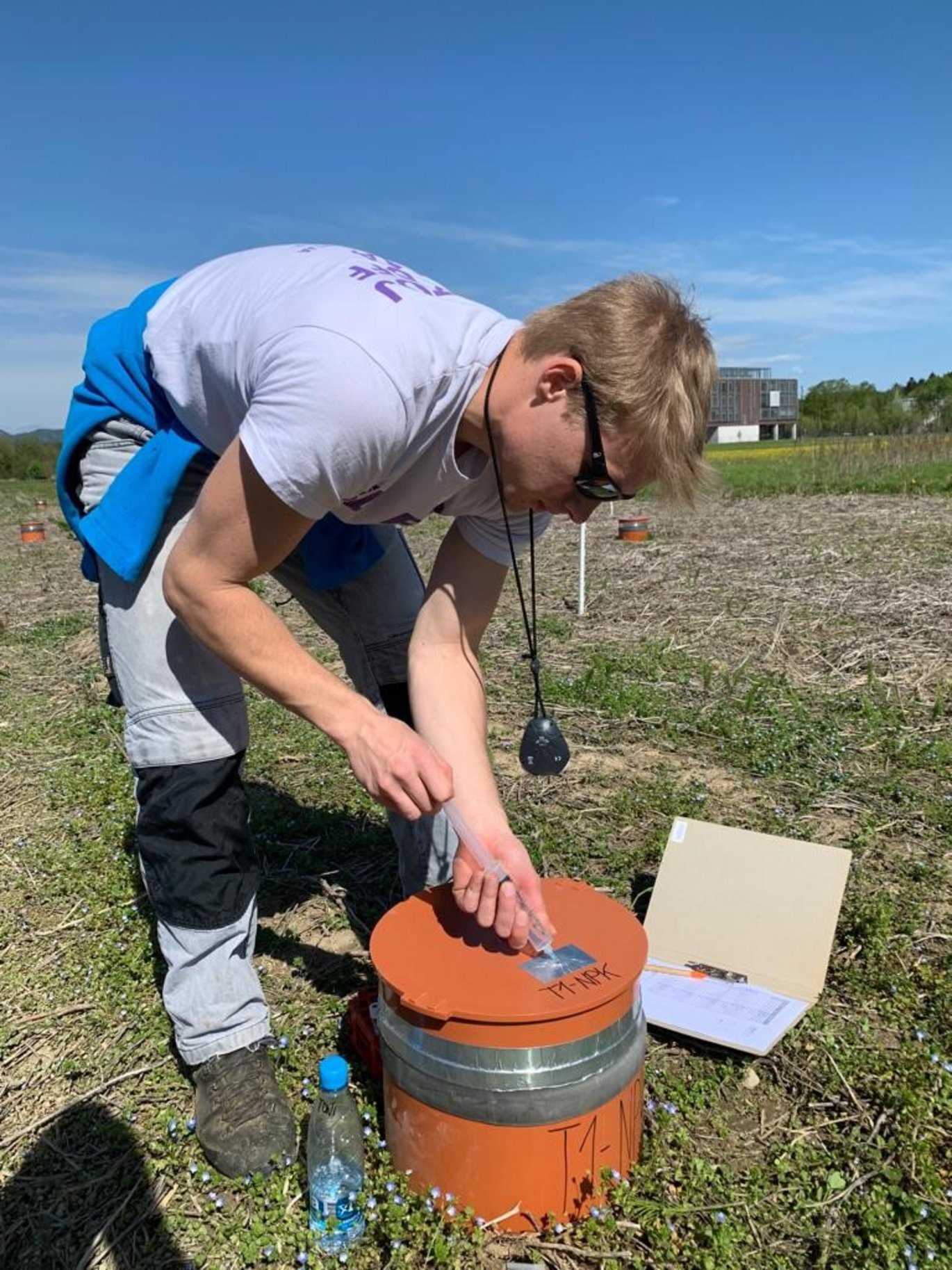Young researchers get hands-on experience at EJP SOIL PhD courses
A great number of young soil talents from all over Europe have taken part in the EJP SOIL PhD courses, where they have been presented with the latest knowledge in the field by leading experts and had the opportunity to meet like-minded early-career researchers and get hands-on experience. Meet two of them here!

The EJP SOIL PhD courses make it possible for early-career researchers to meet with leading experts and fellow young talents and get insight into the most recent knowledge in their field.
No less than 59 PhD students have taken the opportunity to do so.
Meeting world-class experts and fellow students
One of them is Anton Govednik, PhD student at the University of Ljubljana in Slovenia.
He is involved in several EJP SOIL projects, including SOMMIT, EnergyLink and MINOTAUR, and his main focus is on different tillage and fertilization systems - more specifically focusing on the trade-offs between carbon sequestration and nitrous oxide emissions and underlying soil microbial community.
For him, taking part in the “Soil systems” PhD course in the end of 2021 was an opportunity to meet with different soil scientists with expertise in the whole scale of soil analysis:
- The course covered topics from nano-scale and all the way up to the bigger scales from physical, chemical and biological perspective, and it was taught by some of the world-class scientists, who we usually cite in our papers. It was great to meet them and hear about the most recent research in the field. I could not have asked for more, he says.
He furthermore highlights the organization of the course, particularly the group work, which paved the way for good discussions among the PhD students.
- When you have to present to or discuss with somebody else, you really need to understand the papers and dig into it. It worked out very well in the groups, and we got different viewpoints due to our different backgrounds, which was quite rewarding, he says.
Getting hands-on experience in the field
Urtė Stulpinaitė from the Lithuanian Research Centre for Agriculture and Forestry is involved in the EJP SOIL project SERENA, which aims to enhance soil policy effectiveness through the analysis of soil ecosystem services bundles across European agricultural landscapes.
She took part in the PhD course “Methods and tools for soil state and function at different scales” in September this year, and this provided her with valuable hands-on experience with soil analysis:
- In SERENA, I am involved in desk research, so it was great to get into the field and learn how to determine different kinds of soil myself, for instance how to separate organic soil from mineral soil. It has helped me a lot in my understanding of soil science.
Urtė Stulpinaitė is therefore excited to be attending the next EJP SOIL PhD course on “Soil Management for Sustainable Agriculture” at the University of Palermo in Italy later this month.
Spreading new soil knowledge is crucial
Raimonds Kasparinskis from the University of Latvia organized the recent PhD course in Riga, in which Urtė Stulpinaitė took part:
- The participants at the PhD course in September were presented with an overall knowledge about peat soil formation processes and influencing factors, as well as soil classification systems. They gained practical skills during fieldwork and by taking part in practical cartography and modelling workshops, including various methods of soil sampling, soil map creation, GIS database creation, data spatial and statistical analysis, he says and adds:
- In Europe, drained peat soils used for agriculture are a considerable source of greenhouse gas emissions, and methods to evaluate its current state and make distribution assessments at different scales is of high importance for further policy and decision making in relation to its sustainable use and providing of important ecosystem services, including water regulation, biodiversity conservation and carbon sequestration and storage, he stresses and concludes:
- Therefore, spreading this knowledge to a new generation of researchers is no less than crucial - as it is the case for all the soil science subjects covered in the EJP SOIL PhD courses.
Further information
You can read more about the EJP SOIL PhD courses and how to apply on this website
If you would like further information about the EJP SOIL PhD school, please contact: Katharina Meurer, katharina.meurer@slu.se
If you have any questions about the PhD course that has taken place at the University of Latvia, please contact PhD course organiser: Raimonds Kasparinskis, Faculty of Geography and Earth Sciences, raimonds.kasparinskis@lu.lv